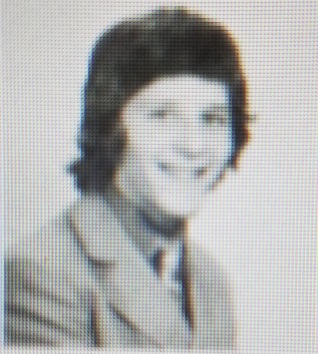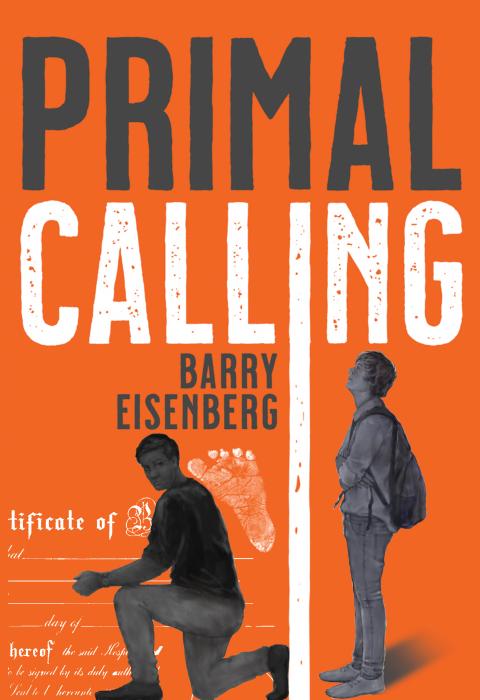A book club question that evoked an embarrassing memory
Recently, a book club invited me to speak about Primal Calling, and there I was asked about my high school experience. Since Primal Calling begins when Jack, the main character, is finishing high school, the question flowed from a discussion about the ups and downs of that period in our lives. The questioner got more specific, asking about my best and worst high school moments. The best, hands down, was graduating. Then I shared the worst.
I went to a very large high school in Queens, NY. My graduating class had well over 1,000 students of every ethnicity, race, and socio-economic background.
Admittedly, I was a bit of a late bloomer, not becoming intellectually curious until college, and especially in graduate school, which was like a grand awakening. I wasn’t particularly motivated nor very self-aware in high school, so at the end-of-the-year student awards ceremony, I knew my name wouldn’t be called for any of the dozens of awards that would be given out. During the presentation, I sat in the middle of one of the very back rows in the large, cavernous auditorium.
The sound system in the auditorium was unnervingly loud, torturously so when the person at the mic had a high-pitched voice. There was no way to escape the thunderous assault on one’s ears, no option of crawling into a daydream; the blare would chase down any pleasant musing, then envelop and mercilessly crush it. And of course, you couldn’t pass the time by chatting with the person next to you. Uttering even a syllable was a felony, and would be met with the warning that it would appear on your dreaded “permanent record card.”
The first several awards were for academic achievement. The valedictorian and salutatorian were named, each proudly walking up to the stage with GPAs and extracurricular portfolios that defied the boundaries of human capacity. How could they have possibly devoted twenty hours a week volunteering in hospitals, leading get-out-the-vote drives, and serving food in homeless shelters while mastering the highest levels of advanced calculus and leading our chess club to state finals? Could they and I possibly belong to the same species? I felt as if they were two figures ahead of me on the evolutionary chart.

Next were all the academic awards. Math. Science. English. How could she write such brilliant poetry, capturing a depth of emotion while my most complicated thoughts revolved around which lunch entrée in the school cafeteria appeared to be the least toxic?
Social Studies. Literature. Language. Could he really speak four languages? And now he’s working on Mandarin? Who are these people? Could I feel any smaller?
The sports awards were next. Our teams were reasonably accomplished, and a few athletes had potential for the pros.
Awards for participation in the various clubs followed. Music Club. Art Club. Bowling Club. Political Studies Club. Audiovisual Team. A group called Sing. I was barely aware that these groups existed, let alone that they energized so many of my classmates.
There was recognition for the Boy Who Did the Most for the School and Girl Who Did the Most for the School. Hmmm, perhaps if there was an award for the Boy Who Did the Least for the School, I might have had my shot at glory.
The awards ceremony was winding down. Just a few random awards left. My thoughts strayed to which hallway to take to get to my next class and I made a move to retrieve my backpack from under my seat.
“Next up,” boomed the presenter, “The Perfect Attendance Award.”
Surely, this would go to the Students Who Did the Most for the School. After all, they would have had to have been there without skipping a beat if they were going to do that much for the school. They attended every possible event the school offered – operating the sound and light boards for the plays, keeping the football players nourished during games, and coordinating the talent show, all while editing the school newspaper.
The recipient of the Perfect Attendance Award was about to be announced. The blare from the sound system seemed to ratchet up to rock concert decibel level as the name was called: “Barry Eisenberg.”
What? Huh? Who?
Did they just call my name for the Perfect Attendance Award, better known as the Award Nobody in Their Right Mind Would Ever Want?
Gulp!
The entire assembly looked around to see who won the Nerd of the Year Award, um, I mean the Perfect Attendance Award. Who could it be? And wouldn’t it have been in that student’s best interest to be absent on this day? Oh, the irony!
I had no choice but to shove my backpack back under my seat, stand up, and begin the uncomfortable stagger across knees and toes to get out of the row, awkwardly tripping over my classmates along the way. I believe I gave one girl a contusion on her shin while trying to dislodge the heel of my shoe from a boy’s bookbag strap. “Hurry up,” another boy muttered in a tone of utter annoyance, “This is taking like all day.” The disdain was palpable.
I managed to stumble out of the row. There I was, way in the very back of the auditorium, having to make my way to the stage to receive a handshake and a piece of paper acknowledging nothing more than that I showed up.
Agonizing dilemma: If I walked to the stage too fast, which I was inclined to do to get this over with, I might look too eager. Worse than actually getting the award was being seen as being honored to receive it. Going too slow would add precious seconds to this most humiliating of moments.
In some things in life, showing up is a measure of grit. Lou Gehrig played in 2,130 consecutive baseball games. For this, he was called the Iron Man. Later, in the 1990s, Cal Ripkin, Jr. beat Gehrig’s record by 501 games. Both are icons of tenacity, marveled at for battling through injuries, illnesses, and slumps, for displaying a seemingly super-human determination. George Lee Andrews performed in a record-breaking 9,382 performances as Monsieur André in “The Phantom of the Opera” on Broadway. Franklin Roosevelt spent 12 years and 39 days in office.
But in all these cases, it wasn’t just showing up that earned them accolades. It’s what they did when they were there. I just showed up. The “being there” part couldn’t be less impressive.
As I made my way down the aisle toward the front of the auditorium, I could feel the ridicule from the mass of students burning through my neck, coming at me in silent but lethal waves of derision. I had been relatively anonymous, no reputation to speak of, an empty slate. But now I would officially be branded a geek, and tragically for me, this was way before geekiness became its own brand of cool.
My moment on the stage lasted but a few seconds. Or should I say an eternity. There were the handshakes with the principal and the horde of assistant and vice principals, whose demeanor on stage reflected the mood spectrum of the student body. A few overeager handshakes from those whose social affiliation needs filled them with an unsated hunger for school spirit. A few others who were genuinely proud of their contribution to the educational enrichment of the students. And then there were the few on countdown watch for happy hour.
I clumsily made my way down the line of well-wishing administrators. One of the vice principals clasped my hand with both of his, gushing about how proud he was of me for this wonderful achievement.
What achievement? Dodging the strep that had gone around every March? Feeling too guilty to cut class? I wanted to ask him if he would have been happy to get this award when he was my age? Instead, I just stood there with a dumb smile on my face during the interminable handshake with his palms that had become clammy from all the handshaking in the past hour.
As I walked off the stage and headed back to my seat, I took note of some of the other award recipients. There was the boy whose science acumen might one day lead to a Nobel Prize. There was the girl who wrote an already published essay about women’s rights. There were the National Merit Scholarship semifinalists. And here I was, lumbering my way back to one of the very last rows in the auditorium, that sheet of paper dangling from my hand. That sheet of paper. It was a permission slip for all to make fun of me. It felt like a walk of shame.
I made my way back to my seat, straining my neck to avoid the glare of the girl nursing the wound on her shin. As I slumped into the pitted wooden seat, I took a quick look at the award. "Award for Perfect Attendance" was printed in calligraphy. My name, below that, was in a basic New Roman font. The lettering throughout was faded, as though printed at the end of the run when the ink had practically depleted. An apt metaphor, for sure. I shoved the paper into my bookbag.
Just a bit down the road, it sunk in that there must have been many in that audience who felt a lot worse than I did that day. Like maybe some who desperately wanted recognition but came in second, losing out by a hair.
But more than that, high school could not have been easy for many students back then. There were no easy places to feel at home for those experiencing peer pressure, stressful family circumstances, unhappy body image perceptions, or feeling lost, and maybe very much alone, in a sexual, gender, or psychosocial identity struggle. I can’t imagine what it must have felt like, trying to cope with the weight of loneliness, mustering all it takes to get through the six hours each day pretending to look like you fit in. And what about those students who, by virtue of their race or ethnicity, never felt like fully welcomed members of this academic community, never trusting that the quality of their educational and social experience unconditionally mattered?
It didn’t take long for me to laugh off my most significant achievement in high school. As disengaged from high school as I felt at the time, I managed to get there every day. I certainly wasn’t thinking about my attendance during the year. It had never even occurred to me that I was never absent. And it certainly never registered that they would give an award for that. If it did, I might have chosen the most toxic entrée from the school cafeteria one day, possibly the chef’s specialty, beef chip casserole a la e coli, in the hope that some mild food poisoning would keep me out of school for a day or two.
Over the years, I have come to appreciate showing up in a different light. The expression “Showing Up” has come to mean more than just being in a place; it implies being present… listening, learning. Just being in the school building was a breeze for me. But for others who had to fight through hardships they could not have anticipated life would throw at them, being there was challenging. For some, undoubtedly, a nightmare.
In retrospect, maybe there was some lesson in the perfect attendance award: being there is the first step toward Showing Up. I hope that through the years I have taken that first step and kept moving forward. Today, when I reflect upon receiving that award, I realize I wouldn’t change a thing.

